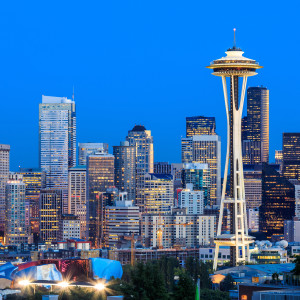The Seattle City Council is facing fierce criticism for passing a tax Monday that targets large employers based on how many hours their employees work.
Councilmembers M. Lorena González and Lisa Herbold convened a task force earlier this year intended to identify progressive sources of revenue to address a growing homelessness problem. The city council then introduced legislation April 20 following more than four months of deliberation. But not everyone is behind the idea.
The proposal requires large companies to pay a $275 annual tax for each of their employees. The tax exempts businesses that make under $20 million annually and applies to about three percent of employers in the city. But critics contest the proposal doesn’t do much to address the homelessness problem while hurting businesses.
“The city of Seattle has been working to raise taxes any way they can for several years,” Freedom Foundation labor policy director Maxford Nelsen told InsideSources. “Washington is one of the few states out there that doesn’t have an income tax, and that’s something that has bothered progressive activists and labor unions in Washington for years.”
The Freedom Foundation is a free-market think tank based in Washington state. It has fought with the city council and local unions on numerous issues like a citywide income tax. But the foundation isn’t alone in its opposition to the employee tax. The local affiliate of NBC reported that over a hundred local businesses have spoken out against it.
Nelsen adds that state voters have consistently rejected implementing an income tax at the ballot box. So progressive activists and policymakers have looked elsewhere to create a more progressive tax system. Seattle has become the center point for much of it with efforts to pass more progressive tax laws – like their own income tax.
“This head tax debate is coming against that backdrop,” Nelsen said. “Basically the city is trying to create a more progressive tax system by taxing larger businesses that operate within the city.”
The Seattle City Council proposed a similar idea with the backing of a local union in 2016. The proposal was specifically aimed at funding the recently created Seattle Office of Labor Standards. But that debate ended up dying with the city having to deal with a general election and former Mayor Ed Murray being accused of child molestation.
“This time around it’s a much bigger tax proposal,” Nelsen said. “The city has been experiencing dramatic increases in homelessness over the last few years despite spending tens of millions of dollars to try and combat homelessness. It hasn’t made a dent that anyone can tell. The homeless population continues to increase.”
Nelsen adds the proposal just throws money at the problem which hasn’t worked. It includes no reforms specifically intended to better address the growing homeless population. He also notes that it could also cause harm by discouraging businesses from moving into the city.
“It’s bad policy to put a tax on jobs,” Nelsen said. “It sends all the wrong signals to companies and businesses interested in doing business in Seattle. The city has already adopted a number of measures and ordinances that show doing business in Seattle is difficult. But this is just about as clear a signal that you could send.”
Amazon has been a particular focus being a major tech and online retailer located within the city. The company said that it would stop construction on a skyscraper pending the city council’s vote. That move prompted construction workers to rally against the tax. Supporters have held their own rallies against Amazon.
Seattle Mayor Jenny Durkan threatened to veto an earlier version of the legislation. But she is now likely to sign it into law with the city council passing a watered down version.

